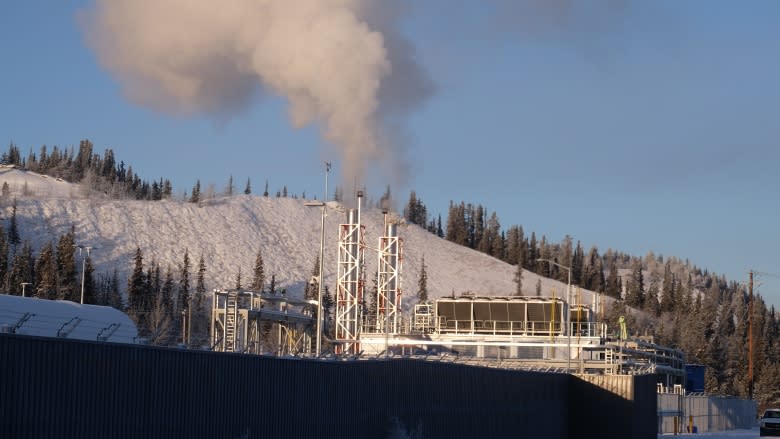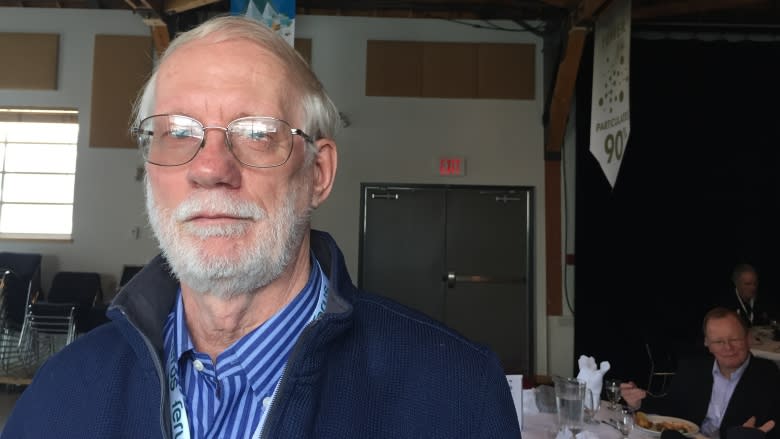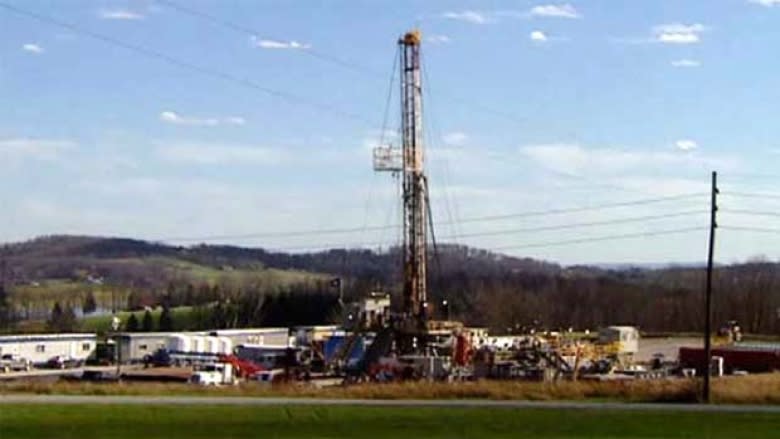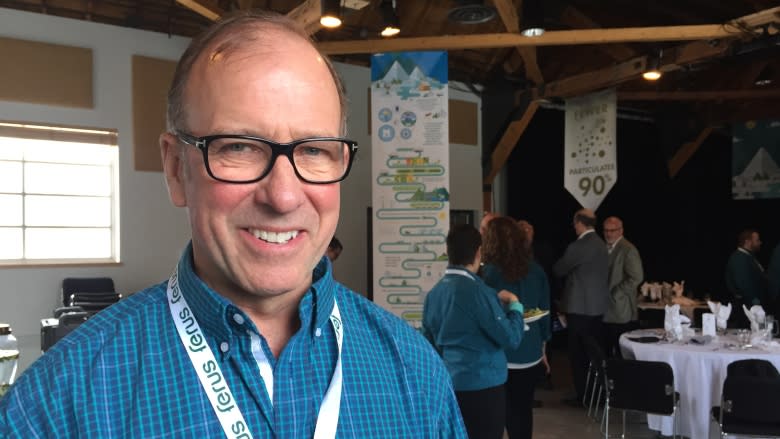Yukon businesses see future fuelled by LNG
Yukon businesses are saying they like the idea of using liquefied natural gas (LNG) to power mines and other industries in the future.
Distribution company Ferus held an "LNG 101" information session in Whitehorse this week, for business, industry and government representatives. It also invited representatives of the anti-fracking group, Yukoners Concerned about Oil and Gas Development.
LNG is the fuel of choice in much of southern Canada and the United States, used in everything from home heating and marine shipping, to powering city buses and tractor-trailers.
LNG use is in its infancy in Yukon, however — right now, its only application is to fuel Yukon Energy's two backup generators.
But that will change — in a big way — if Western Copper and Gold gets the green light on its massive Casino mine project.
The company estimates it will need an estimated 75 to 77 megawatts of power to operate the mine, 400 kilometres northwest of Whitehorse. That would be more power than is currently used in all of Yukon right now.
The company has signed an agreement with natural gas distributor Ferus to supply it with energy for the mine. The agreement would see a "virtual pipeline" of 12 oversized tanker truckloads of LNG arriving at the mine site each day.
"We're off-grid here. We're too far away from the Yukon Energy distribution system," said Cameron Brown, vice president of engineering with Western Copper and Gold.
"And even if we could overcome those distances economically, Yukon Energy doesn't really have the power or the kind of distribution system that would be needed to feed such an operation."
Brown told the audience at the Whitehorse information session that after initially considering coal as a power source, the company elected to go with LNG.
"We eventually settled on LNG as being the most cost-effective, and also it's very desirable from the perspective that it has relatively low emissions. [A] dramatically different environmental performance, obviously [compared to coal]," he said.
He says the mine's power plant would have three parallel, gas-driven generators, each generating about 49 megawatts. That would require about 1,000 cubic metres of LNG, per day.
Concerns about fracking
Some businesses at the Whitehorse workshop said that although LNG is a fossil fuel, it's still preferable to diesel.
Lynn Hutton is head of the Chief Isaac Group, which is the development corporation of the Tr'ondëk Hwëch'in First Nation and she's also president of the Yukon First Nation Chamber of Commerce. She says the private sector can benefit from learning about LNG.
"I think it's what we need to start talking about up here. I think a lot of us, including me, don't know about natural gas as opposed to diesel. We understand they're both fossil fuels, but overall, if we can do a little bit better for environment, we're behind that."
But Hutton says one concern is how LNG is sourced. She says First Nations are concerned about hydraulic fracturing, or fracking.
"It's always a concern for us. We don't just worry about our own environment; we are worried about the Dakota First Nation's backyard, the Fort Nelson First Nation, and so we see that as an issue too," she said.
"But diesel is a problem for the environment too, so sometimes you have to look at what's best for the environment."
Hutton says First Nations development corporations must take a pragmatic approach.
"Wouldn't it be lovely if we could get off fossil fuels? But when is that going to happen, and do we administer poverty until then? Do we as First Nations say, 'oh, we're not a part of it' and not being able to feed our people? You have to be realistic in business."
LNG powered tractor-trailers hauling Yukon goods?
Peter Turner, president of the Yukon Chamber of Commerce, says there are many off-shoot opportunities for Yukon businesses, including converting trucking fleets to LNG-powered vehicles.
"One of the things they mentioned today were LNG-powered semis, and everything that we consume here in the Yukon — whether we're going to Superstore or whether we're a company consuming just about anything here — is shipped up from down south by a semi that currently burns diesel," he said.
"So, as Detroit starts building more LNG semis, I could definitely see that being a spin-off opportunity."
'We saw the merits of LNG'
Meanwhile, Yukon Energy vice president Michael Brandt said the utility is satisfied with its own transition to LNG, to fuel its backup generators.
"This is a long-term decision, and we saw the merits of LNG. To stick with diesel — when you knew there was all these opportunities out there to go cleaner, quieter, cheaper — would have been foolhardy."
Brandt told the Whitehorse gathering that the utility is interested in renewable energy sources, but said a short-term priority right now is to bring a third LNG engine into service, "to meet our capacity requirements."
Dick Brown, president and CEO of Ferus, acknowledged that natural gas does have a carbon footprint because it's a fossil fuel, but adds that LNG is the best way to transition to fully renewable energy.
"The technology and the ability to store energy from renewables is not there yet. And it may take 10, 20 years to get there," he said.
"So I want a cleaner future for my grandkids, but in the process of getting there, I want us to be prudent and cleaner in the meantime."
Those arguments do not satisfy LNG skeptics, and those vehemently opposed to fracking.
Sally Wright, with Yukoners Concerned About Oil and Gas Development, isn't convinced that LNG is either clean or cheap.
"I was a bit troubled by some of the things said by Yukon Energy officials today about the cleanliness and the social license for the liquefied natural gas plant in Whitehorse," she said.
"I also recognize that these are businesses, and for them, in this particular economy, the way that our energy systems are designed right now, LNG undercuts. It's an economic, not an environmental, decision for them."





